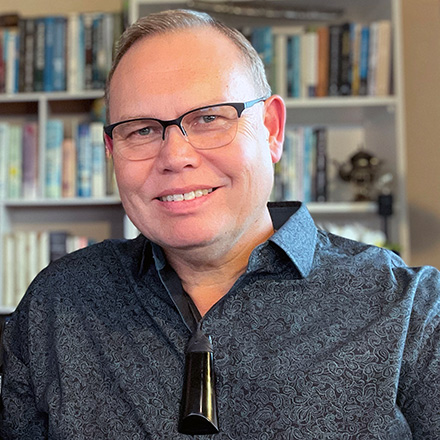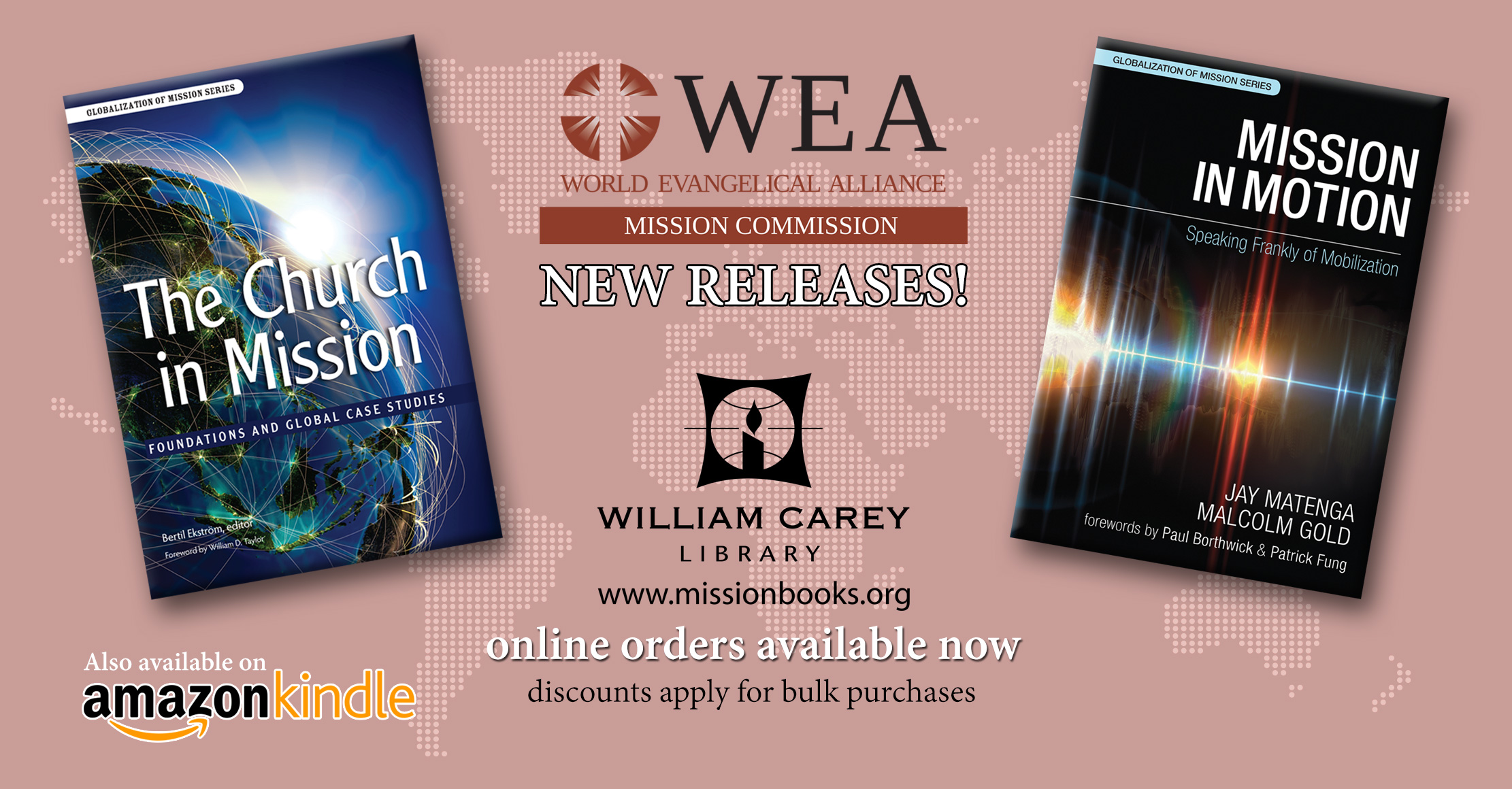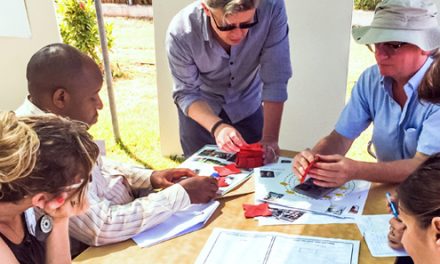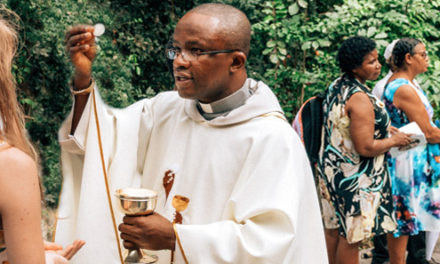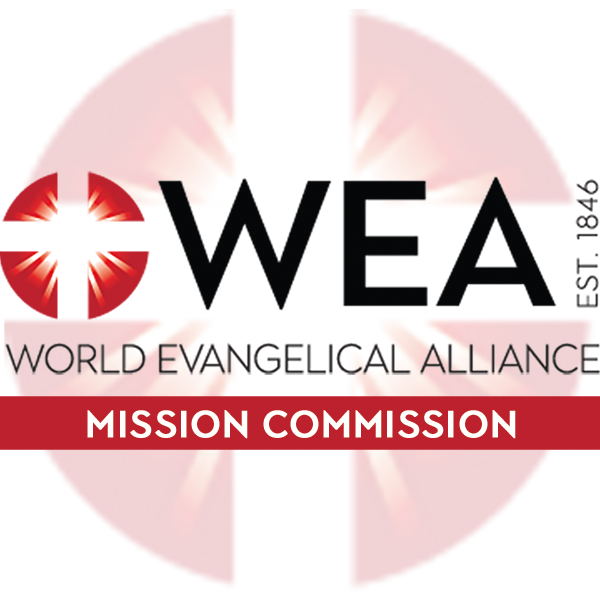LEADER’S MISSIONS FORECAST 2023
[60 Minute Read]
Dear fellow participants in God’s mission,
Grace and peace to you in the name of the Lord Jesus Christ.
In this essay I highlight seven major issues and build a reflection about them on Joshua’s encounter with the Commander of the Lord’s army (Joshua 5:13b). The principle revealed in this encounter can strengthen our foundational missions thinking, increasing its relevance to our complex and challenging post-pandemic era.
I see a polarisation widening as pressure comes on people with differing histories and values struggling to live with or near each other. It is becoming increasingly apparent that the liberal globalization project is failing to achieve the peace promised by a vision of mutual economic prosperity. People with power have grown tired of restraint and are showing their true colours, whether applying existing power to extend their influence, or finding new power to combat influences that threaten their ideals or visions of a beneficial future—for them and their tribe. The peace of Christ differs markedly from worldly visions of peace, which ultimately fail to bring forth that which they promise. The peace of Christ is only found where New Creation is manifest because there, where as few as two or three gather, is found the presence of the Creator—the King of the Kingdom of God. Our responsibility as participants in God’s mission is to co-create this New Creation, to create light right in the midst of ever-increasing darkness
It was a new generation that entered Canaan by way of a dried river Jordan according to Joshua 5. A new generation in a new context, freshly consecrated to the Lord, in preparation for the mission ahead of them. A new era had begun. The past was (literally) cut away and the future lay before them for the taking. Even the old resources had ceased as promised new provision was gathered, prepared, and used. The land that the children of former slaves had just entered was promised by covenant to their forefathers and the Israelites had come to dwell there as freemen/women. The current inhabitants were seen as ‘the enemy’.
Presumably because of their idolatry, violence, and otherwise ungodly lifestyles, the people dwelling in the land were deemed unworthy of it and judgement fell upon them by way of the migrating Israelites. We have to concede, however, that the reasons for the conquering of Canaan are known only to the counsel of God. Even so, it is instructive to note that God did not show favour in this. As Peter realised in the house of Cornelius, “I see very clearly that God shows no favouritism. In every nation he accepts those who fear him and do what is right” (Acts 10:34-35 NLT). Rahab was spared, Israel was successful, because they feared God and did what was right.
1. A Tyranny of Tribes
Approaching Jericho, Joshua was startled by a sword-wielding man standing in front of him. He asked, “Whose side are you on—ours or our enemies?” (Jos 5:13b MSG). “Whose side are you on?” is a question that is amplifying division in our world today—in ‘the world’, in the Church, and in missions.
We have been living in an ‘either/or’ era for quite some time. As social media became more prevalent in the mid-2010’s it became increasingly possible to bring broad-spectrum shame to bear on people whose behaviour was deemed unacceptable by a large number of like-minded accusers. Around late 2019, but certainly by 2020, this had become known as the “cancel culture” effect. This type of public accountability (and at times, abuse) has become part of a suite of tools used by protagonists to sway public opinion, spotlight unacceptable behaviour, or drive people into certain ideological camps. Before long, ‘cancelling’ was added to a pre-existing toolset of ‘doxxing’, ‘trolling’, and ‘gaslighting’, all relatively new terms IRL (in real life).
It is astounding that some people exist to create conflict on the internet, but the motivation to do so is potent. There is money and power to be gained. Especially by those who can attract and influence a large following or tribe. Q-Anon anyone? People are paid well to create division, to popularise ‘fake news’, sow the illusion of a zero-sum game (where there can be only one winner), and generate sufficient emotion so that their views depersonalise the proposed opposition as ‘the enemy’.
“Whose side are you on?” Joshua asked the man. “Neither” was the answer he got from the Commander of the Lord’s army. Neither. How can that be? Clearly Israel was the Lord’s chosen tool of judgement against Canaan. How could God not be on their side? It is too simple to argue that the moral of the story is that Joshua should have realised Israel was on God’s side. Too many of us act as if we are on God’s side, but the fruit of our actions prove the contrary.
Our actions, Jesus says, show our true selves (cf. Matthew 7:15-20). We need to be both self-aware and discerning. We who lead and those we follow can appear harmless as sheep but are revealed to be vicious wolves by the way people are treated. Are we really the Shepherd’s sheep, exhibiting the fruit of the Spirit in all our relationships, regardless of the context or hierarchy? Or are we, or those who lead us, deceptive, bullying, demanding, mean-spirited, blame-shifting, power-retaining, spiteful, demeaning, self-protective, angry, envious, divisive… or worse? In contrast to the fruit of the Spirit, Paul says that anyone exhibiting attributes like these “will not inherit the Kingdom of God” (Galatians 5:21 NLT). So, why follow such leaders? Why believe them when they try to convince us that a certain group is “the enemy”? Such leaders are not building the Kingdom, their relationship-destroying behaviour is not co-creating Christ’s New Creation.
God has no sides. God only has true followers, those who fear God and do what is right (according to God’s righteousness). The Gospel writers refer to such people as disciples—followers and pupils of Jesus. Beyond Acts, however, the word (μαθητής/mathētēsis) is no longer used. As it grew, the early Church seemed to prefer inclusive familial language (brothers/sisters), or descriptors (believers/saints). Although Matthew 20:18-20 remains prevalent in our missiology, the purposes of God would be better served in our new era if, as we went into all the world, we co-created and instructed family in the name of the Holy Three. ‘Disciple’ can too easily be interpreted through an individualist lens, and ‘make disciples’ as a type of production line. There is no such temptation with family. There is also no division inherent in family. There may be differences, but family is family. Beyond the Gospels, family is a dominant metaphor for Christ’s covenantal community.
If we ask one another “whose side are you on?” the appropriate response should be, “the Lord Jesus Christ’s”. He is not on our side or the side of our particular doctrinal or denominational tribe. If we are truly ‘saints’, our only allegiance is to Him.[1] Every barrier of hostility is broken down between those of us who are one family in-Christ (cf. Ephesians 2:14). Including historic grievances, tribal affiliations, geographic boundaries, state patriotisms, even biblically faithful theological differences. That is not to say that justice is not sought when offense is received, but that we seek redress under a new law, the law of merciful loving-kindness as a people who know that we have received forgiveness in overwhelming measure thanks be to our Lord Jesus Christ, by the great grace of God.
2. A Time of Testing
Although the Apostle James was referring to interpersonal conflicts within the fellowship of believers, his encouragement to persevere in the faith equally applies in all situations. As we consider global events and other major changes that have occurred in 2023, we do well to heed his advice (cf. James 1:2-4). The testing of our faith matures us—if we hold fast in our trust in God and commitment to one another in-Christ. This promise of maturity (or completion/perfection/fulness) is cause for great rejoicing according to James.
It sounds perverse to a world hell-bent on avoiding suffering, but this fits with the ‘way of the cross’. Hear me now—I am not suggesting that God is orchestrating global events just for our maturity, but Scripture is clear that the appropriate response to external calamity is steadfast trust in God, finding meaning in the purposes of God, and responding with godly action.
Having established some theological framework, let us now consider some missional significance of events that have transpired over the past twelve months.
2.1 Creation Calamities (Environment)
Creation care workshops were the least attended at the World Evangelical Alliance’s Future of the Gospel Forum (Istanbul, 8-12 October 2023), and care for creation was ranked of least concern as a gospel issue by the leaders present in a survey that was taken at the event, which included a large number from the Majority World. There are understandable (but not necessarily acceptable) reasons for a low concern for creation from believers.
Some of the lack of concern is rooted in eschatologies that interpret a few verses to suggest a discontinuity of our natural realm after Christ’s return rather than a renewal of it (which is an interpretation better aligned with the rest of Scripture). There are also practical and economic reasons for some, especially those who have little access to clean-energy alternatives or recycling facilities and those who feel oppressed by external pressures to make changes they and their people cannot afford. Then, of course, there are competing values such as prioritising people over places, which really need not be so dichotomistic. After all, people are heavily dependent on places. Caring for the one should infer care for the other.
Regardless of our theology, we all live in the here and now. In 2023 experts were “virtually certain” that the world experienced the highest global temperatures in 125,000 years,[2] and ten nations experienced unprecedented and devastating flooding. We recorded the hottest ocean temperatures in 2023, which will have ongoing atmospheric implications with damaging weather patterns. Heat waves swept over the entire Northern Hemisphere in their 2023 summer, with the Horn of Africa experiencing its worst drought in 40 Years.[3] With the new year, the summer of 2024 begins for the Southern Hemisphere and we are about to see what effect raised ocean temperatures will have on the El Niño Southern Oscillation (ENSO). ENSO has caused historic droughts throughout Asia in the past (when CO2 levels and ocean temperatures were much lower).[4]
Former leader of Langham Partners and author of The Mission of God and The Mission of God’s People (among many others), Christopher J H Wright, speaking at the 2023 Korean Global Mission Leaders Forum in South Korea, drew parallels between the length of the prophet Jeremiah’s ministry and how long reputable scientists have been warning us about catastrophic climate change as a result of CO2 emissions—approximately 40 years.[5] Jeremiah was a thorn in the side of the powerful in Judah for 40 years before judgement finally came upon them. Jeremiah kept pointing out that the fruit of their own actions were condemning them. The warnings were clear but went unheeded. The result was devastating for the last of the people living in the land who assumed they were “on God’s side”.
Whether we view our participation in God’s purposes as needing to make disciples or to expand God’s family, we cannot ignore our habitats as central to our responsibility as people who fear God and do what is right. Matthew 28:18-20 might have been nicknamed “The Great Commission”, but our mandate to care for creation is our first commission and it has not been superseded.[6] The very evidence of our being disciples should include a renewed concern for the environments in which we live as well as the people we live amongst.
2.2 Cascading Crises (Aid/Relief)
By all accounts, 2023 has been disastrous for millions who live without the economic security of so-called ‘developed’ nations. The United Nations reports that, “One in 22 people around the world are now in need of humanitarian assistance—a staggering 362 million people, which is a record high. More than 110 million people have been forced to leave their homes; and more than 260 million people are facing acute food insecurity—with some at risk of famine. Conflicts, climate change, and financial turmoil are increasing the need for aid.”[7]
When we speak of the mission of God we cannot ignore the plight of our fellow human beings. Church history has proven that our greatest witness to the goodness of God is our care for the marginalised. It is not so much that “God has a preferential option for the poor”[8] because I do not believe God does. As Peter realised in Cornelius’ fine house, God shows no favouritism. It may appear that way in the Bible because God speaks through the prophets about care for the poor, marginalised, displaced, orphaned, widowed, etc. There is definitely concern for these vulnerable ones. But who are the recipients of God’s instruction? The rich and powerful; those with the capacity to assist, to be the agents of God’s loving kindness, yet who refuse to share. So, it is not so much that God favours the poor, but that God is condemning the powerful for their lack of compassion, concern, and concrete action to “lift up the lowly” (cf. Luke 1:52b). God accuses the proud, the poor are evidence for the prosecution, and God will bring the mighty down (cf. Luke 1:52a).
Not so with the people who follow Jesus as Lord. The love of Christ at work within us by the Holy Spirit compels us to help the needy within our spheres of influence. The global Church activated can and is effectively addressing crises as they arise, but still resource is being hoarded by those blessed with much.[9] Billions of Dollars, Euro, Pounds, Shillings, Yen, Won, Baht, Rupee, Rupiah, Ringgit, Renminbi, Naira, Peso, and Piso remain unreleased for the good of the suffering as a testament to the gospel of Jesus Christ–a gospel which needs to be proclaimed/explained, for sure, but one which is proven true by us doing what is right.
2.3 Causing Chaos (Migration)
The 2022 UN World Migration Report states that “the estimated number of international migrants has increased over the past five decades. The total estimated 281 million people living in a country other than their countries of birth in 2020 was 128 million more than in 1990 and over three times the estimated number in 1970.”[10] Over 30 million of these migrants were people forced from their countries of origin—refugees.[11] That figure does include internally displaced people, which number more than 50 million.[12]
Ruven Menikdiwela, Director of the United Nations High Commissioner for Refugees Office in New York, noted that in comparison to 2022, Europe saw a 260% increase in migrants crossing the Mediterranean Sea from Tunisia in the first nine months of 2023, and lamented that “over 2500 people were accounted as dead or missing this year alone”.[13] The environment is not the greatest danger though. People forced to leave the security of their homes and community too easily fall prey to the worst kind of human depravity, especially females and children. It is believed that 49.6 million people were living in modern slavery in 2021 between forced labour and forced marriage. Of that number 4.9 million women and girls were estimated to have been exploited commercially for sex-related labour and an additional 6 million in other economic activities.[14] Modern-day slavery simply cannot be ignored by the local church around the world. In addition to protecting our own women and children, we need to remain wise to the trafficking threats that exist around us, even in the most stable of nations. Our missions responsibility should also include helping those we minister amongst to protect themselves and their families from the wiles of slick traffickers. The World Evangelical Alliance’s World Freedom Network has some great resources in this regard.[15]
While it cites different figures due to its own definitions, the 2023 World Bank report concludes that people on the move represent a significant “development challenge” but ultimately sees the outcome of new migrant labour as positive. [16] Migrants and refugees can be a tremendous blessing for receiving nations, especially those like South Korea whose population growth is already unsustainable.[17] Developed economies need the labour force, particularly a youthful one. India surpassing China in population this year, with a much larger proportion of youth, places their economy in a strong position… if it can train and gainfully employ its young population. This is the dilemma for African nations as well. By 2050 1 in 4 people in the world are expected to be of African descent. 80% of the future’s youth will be in Africa or Asia.[18] But if these young people are unable to envision a beneficial future at home, they will leave to pursue better opportunities, and may find the dangerous migrant routes worth risking if legitimate access is closed to them. There is a lot of opportunity for missions here.
Migration, whether legitimate or otherwise, can also create chaos as nationals and newcomers struggle to adapt to each other. As immigrants bring their influence to bear and start to bring change to a society it can threaten traditional values and norms of host cultures resulting in a backlash until successive generations of migrants’ children grow up embedded in society, usually de-escalating tensions. As Director of Global Diaspora Institute at Wheaton College Billy Graham Center, Dr Sam George has noted, the leaders of the UK, Ireland, Portugal and “about a half dozen other British Colonies”[19] are of South Asian descent, showing how influential future generations of migrants can become.
There is a fine line between being opportunistic (exploiting situations for selfish gain, often at the expense of others) and making the most of opportunities. But it cannot be denied that the difficulties faced by the first generation of diaspora people presents a tremendous opportunity for gospel witness—and the easiest opportunity for local churches to be a blessing to the nations. Cross-cultural missions organisations are recognising this potential,[20] but local churches tend to remain resistant to it, entrenched as they can be in the comfort of their own cultural certainties.
As the new era of missions unfolds in 2024 we do well to appreciate with Dr Sam George that, “people on the move are powerful agents of growth, spread, and transformation of God’s work in the world and will continue to shape the contours of the advancement of Christianity in the 21st century and beyond.”[21] If we have the will to do so, the local church, supported by the rich knowledge resources in the cross-cultural missions community, can calm the chaos created by migration and transform it into a blessing for both the migrant and the nations through which they pass and settle.
2.4 Compounding Conflicts (War)
Among the many reasons for people to leave their homelands and seek a better life elsewhere, conflict is the most traumatic of all. From civil unrest to outright war, the destructive violence, abuse, and destitution caused by conflicts increasing over the past decade should bring us all to our knees, crying out to God with the Psalmist, “how long oh Lord?” (e.g. Psalm 13:1ff).
The International Crisis Group notes that, “2024 begins with wars burning in Gaza, Sudan and Ukraine and peacemaking in crisis. Worldwide, diplomatic efforts to end fighting are failing. More leaders are pursuing their ends militarily. More believe they can get away with it.”[22] Conflict zones in 2023 with perhaps less global impact, but certainly less publicity, include Yemen, Syria, Francophone West Africa, Ethiopia, Myanmar, Manipur, Haiti, and Nagorno-Karabakh; to which we might add potential conflict zones such as the Korean peninsula and Taiwan. As noted above, millions of people are affected (if not killed) by such conflicts.
At a time when geopolitics are experiencing great flux and the liberal economic ideals that led to globalisation disappear like a mirage, “constraints on the use of force—even for conquest and ethnic cleansing—are crumbling.”[23] Most of the Christian world outside of a hot zone is likely to view conflicts, coups, and civil uprisings without much response unless Christians are directly involved like in Ukraine and Palestine, or being persecuted as in Manipur or the Sahel. Ukraine and Palestine, however, have caused the “whose side are you on?” question to rise within our ranks, with precious believers affected on both sides of each war.
In his New Year’s address, Secretary General of the World Evangelical Alliance (WEA), Archbishop Professor Dr. Thomas Schirrmacher spoke of the challenge to speak for and against one or other of the sides in the Ukraine and Palestine conflicts.[24] The difficulty for the WEA, as it should be for all of Christianity, is that we have a duty as part of the family of God to prioritise concern for all our fellow believers within the conflicts, regardless of their nation of citizenship or residence. In both of these major conflicts there are believers who are deeply patriotic and wish to defend their people from external threats. We should appreciate this, even when the scales of international justice find that people within one nation or another have committed war crimes (inevitable on both sides when restraint is removed and bloodlust takes hold in war). The onus is on every believer in a conflict to live according to a higher ethic even as they passionately defend against threats to their existence.
This higher ethic is exemplified in the response of Palestinian believers in the midst of great suffering. Rev. Dr. Munther Isaac’s Christmas Eve address from the Evangelical Lutheran Christmas Church in Bethlehem was a chastisement we need to take seriously.[25] His appeal for the global Church to lobby for the cessation of genocide and an end to the war was appropriate. Some of what he said will no doubt sting the ears of some in Euro-American influenced churches but like the prophets of old he speaks truth that should result in repentance and right action—a penitent review of our theology included, especially when the Bible has been (mis)interpreted by the powerful and weaponised against others. Believers in Israel are no doubt ministering with compassion to their suffering communities too. In solidarity, we ought to be uplifting our family on both sides to our God who sees all and will be the final judge.
More than two centuries of Protestant missions thinking has taught us to appreciate the richness of God’s grace in every culture and the valuable contribution that people from every ethnicity can make as we seek to co-create New Creation together. As N.T. Wright points out, “God works all things together for good with those who love Him, who are called according to his purpose.”[26] No exceptions. From every tribe, language, people, and nation, all Christ-followers are called to participate in God’s purposes. Each one bringing their unique cultural and theological contributions into the mix, born of the gospel growing indigenously in their contexts.
At times we may have little power to intervene but as we wait for the physical return of our Prince of Peace it is never in vain to do what we can toward the cessation of genocide, war, trafficking, environmental abuse, and all other forms of violence, pleading for the development of mutually beneficial and lasting terms of peace and right living. Where injustice is evident so the voice of the God’s people should rise in protest—regardless of who the perpetrators of injustice are.
If it is in our power to do so, we also should act to foster peace, reconciliation, and mutuality. Like missionary Henry Williams in the founding of Aotearoa New Zealand (1840) or Bishop Tutu in the more recent South African situation (1995), Christ-followers should be at the forefront of encouraging peaceful co-habitation as integral to our understanding of God’s mission.
2.5 Curing Culture (Decolonisation)
One of the central complexities of the Palestine/Israel situation is a competing claim to indigeneity. Who are the ‘rightful’ people of the land? As illustrated by Joshua’s obedience to God in taking Canaan, Jews have a covenantal, historic, and genetic claim to the land, arguing that they were forcibly displaced and those who have returned are building on their rightful inheritance. Palestinians have a history of unbroken residence and by virtue of their presence from generation to generation for multiple millennia, they too claim indigeneity. Which side does God support? The answer, according to the full narrative of Scripture, is neither. But those who fear God and do what is right will find God’s acceptance.
Indigeneity is a difficult concept to lock down, especially since human history is a history of migration.[27] Indigenous literally means “of the land” and applies to groups of humans whose culture is deeply embedded in their geographic locales. “Indigenous” is a contentious term, misused in the past. Latin Americans (descendants of settlers, not necessarily the indigenous themselves) seem to prefer ‘autochthonous’ as an alternative because ‘indigenous’ has been a term of abuse for the native peoples of the Americas in the past. Until relatively recently, ‘aboriginal’ has also been a term used to refer to original peoples. In North America, ‘First Nations’ is used as an acceptable collective term. However, “indigenous” has been gaining global popularity since the mid-1990s and is likely to endure. The United Nations acceptance of the term and support of the rights of indigenous people to self-determination has much to do with elevating the term and the adoption of it by indigenous peoples as a preferred collective noun.
The UN has a fact sheet that helps to identify indigenous people and explains that they are people “who inhabited a country or a geographical region at the time when people of different cultures or ethnic origins arrived, the new arrivals later becoming dominant through conquest, occupation, settlement or other means.”[28]
Since the European diaspora started colonising and spreading more than 500 years ago, never has there been a time when the rights of indigenous people have been so well supported. This coincides with heightened resistance to overt colonisation and intolerance of the imposition of values and norms from the outside upon a traditional culture. In 2022, the UN declared an international decade of indigenous languages,[29] which Bible translators should find cause for celebration. In 2023, the WEA helped support research into religious freedom for indigenous people for both the US government[30] and the German Bundestag (federal government).[31]
The English summary paper of the longer German report notes that “The religious freedom of indigenous peoples has not been the focus of human rights policies until recently. More than ever before, experts understand that there can be no discussion of protecting forests and the climate without taking into account indigenous peoples’ land rights and rights of freedom of religion or belief.”[32] In effect, the report acknowledges the need to view the wellbeing of a people in an integrated way, rather than trying to treat issues as if they were separate from an interrelated system. Missions must do the same. We should not speak of spiritual salvation without concern also for physical wellbeing.
For the sake of an increasing uptake of Christianity among indigenous peoples (whether they convert from traditional or another majority religion), we must see religious liberty among indigenous people (and indeed all people) as another integral aspect of our participation in the mission of God. Everyone should be free to pursue (or change) their beliefs. If change results in them following Jesus we also need to respect the right of people from every culture to develop their theological perspectives even if aspects of those beliefs take a different form from a Eurocentric theological consensus—so long as such perspectives remain biblically faithful and in conversation with the global Church (including the historic Church).[33]
Where cultures collide, however, such as in every case of colonisation, in the Israel/Palestine situation, or even in inter-tribal tensions, peace can only be found in some form of hybrid co-habitation—the co-creation of a blended culture. This can be hard to imagine when grievances run so deep for so long, but a vision of a mutually beneficial future must prevail if peace is to be possible. And it cannot be mutual if one side is systematically exterminated.
The Apostle Paul notes this as the central outcome of the gospel. He calls it reconciliation. In other words, right relationship. Reading Paul’s letters with Western eyes highlights the vertical dimension—our reconciliation with God. Reading with Eastern eyes includes the horizontal—reconciliation with one another and our habitats. For Paul, followers of Jesus among the Jews are indigenous to the faith, the rest of us are migrants, adopted in by virtue of the blood of Christ (e.g. Ephesians 2:11-18), and it took a great blood sacrifice to enable the grafting of Gentiles/Nations into the family of God. Among other things, blood is the source of family. One might say, “the blood of Christ availed for me the means to join God’s family”, a global family that hybridizes with every new ethnicity that joins it.[34] What is our mission in this world if it is not to increase the family of God in number and diversity?
A missional understanding of contextualisation has much to offer indigenous people who seek to shed the constraints of colonisation and cure their culture to the point where it can thrive in their contemporary contexts. There is liberty in the gospel, but it is not a liberation of the political kind, even though its effects may have political ramifications. It is a liberation to be fully who the Creator fashioned us to be in the lands of our forebears, but it is also the freedom to relinquish the rights that our dignity affords us so that we might be of service to those different from us. This, after all, is the way of Jesus who by His very nature was God but didn’t consider His origins something to be taken and used to overpower, force, or otherwise manipulate others to his will (cf. Philippians 2:5-11).
Followers of Jesus who are part of verifiably large movements from a different majority faith, as well those who are decolonising their life in Christ from the faith imported from Europe, have much to contribute to global Church and missions conversations from their unique experience of God. The World Evangelical Alliance recognises this and in 2023 the Mission Commission was granted approval to develop a Global Indigenous Gospel Forum to help amplify the voice of indigenous for the benefit of the global Church.
2.6 Creating Comfort (Technology)
At the turn of the century, Artificial Intelligence made ‘first contact’ with humanity with the emergence of social media (curation AI) and tech observers Yuval Harari, Tristan Harris, and Aza Raskin argue that “humanity lost” in that encounter.[35] 2023 was the year of ‘second contact’ (creation AI) even as we are still learning to cope with fallout from the first. Where first contact pursued our attention and created the engagement economy, second contact is pursuing attachment—manufacturing intimacy. Harris and Raskin warn, “whichever chatbot gets to have the primary intimate relationship in your life wins”.[36] Once technology has become entangled in matters of the heart, manipulation of the person easily follows. Harris and Raskin go as far as to claim that 2023 is the year that broke democracy. With the advent of deepfakes and perfect voice replication from merely 3 seconds of audio, who/what can citizens trust anymore?[37]
This has huge ramifications for society, especially individualistic democratic societies that are reluctant to regulate matters of ‘personal choice’. It is these same societies that are concerned about of isolation, loneliness, anxiety, and a sense of hopelessness in epidemic proportions that is resulting in a spectrum of violence from murder at one end to suicide at the other.
Some argue that the virtual world is a great space to make and develop globally diverse communities of faith while leveraging common interests, but the development of Christian maturity in these excarnational (out of body) encounters remains unproven, certainly not to the degree that incarnational (embodied) interpersonal relationships can and do transform us. Yet, the virtual world is a realm that we must urgently dare to enter with the hope of the gospel and practical demonstrations of the love of Christ, insofar as cyber-reality allows.
More than 3.3 billion people worldwide play online games. 1.7 billion of them identify as male and over 1.39 billion as female.[38] That total is more than the entire population of every form of Christianity in the world (which is approximately 2.6 billion according to the team at Center for the Study of Global Christianity[39]). The global gaming industry’s revenue was set to reach US$233.5 billion by the end of 2023.[40]
Virtuality is attractive sociologically (to avoid physical trauma), psychologically (to entertain the mind), spiritually (to experience new realities), and economically (for creators). Now AI is adding emotionally to the mix. The temptation to ‘get lost’ in virtual realities is becoming more and more enticing and, if some commentators are to be believed, this is exactly the intention of a malevolent force intent on emerging physically into the world via technology.[41]
Author, environmentalist, and philosopher turned Romanian Orthodox believer, Paul Kingsnorth has studied the rise of industrialisation for decades, referring to it as “the machine”. As concerns about AI burst into public awareness in the first quarter of 2023, the overwhelming impression that Kingsnorth got from the emergence of generative AI is that “of some being struggling to be born; some inhuman or beyond-human intelligence emerging from the technological superstructure we are clumsily building for it.”[42] It is not for no reason that over 33,000 people, including AI creators, have signed a March 22, 2023 open letter to pause giant AI experiments.[43]
While it may be a little tongue in cheek, AI creators who are proponents of transhumanism openly declare that they are “building God”.[44] Creators of AI may have deep concerns, with over half believing that there’s more than a 10 percent chance that AI will be the source of humanity’s extinction,[45] yet still they “feel that they have a responsibility to usher this new form of intelligence into the world.”[46] They do not exactly know what they are creating but they seem compelled to create it. Unlike previous technological ruptures, there are metaphysical aspects to AI’s development that may well have biblically apocalyptic implications. As AI matures it would not be unreasonable to consider that whatever emerges will be the highest form of a false god that humanity has ever encountered. The Church is woefully unprepared, but the missions community has the ability to swiftly engage, if we have the will to do so. What is the virtual realm but just another context in which to participate in the mission of God
If New York based writer Ross Barken’s predictions hold true, there is potential for a backlash to this technological marvel, to the machine learning that we call AI (Artificial—or Alternative[47]—Intelligence). The future is impossible to predict but we can look to the past to see patterns that can be instructive, as the quote attributed to Mark Twain attests, “history doesn’t repeat itself, but it often rhymes.” Barken observes, “The late 2000s were characterized by what might have been the last burst of techno-optimism for decades to come” and in rebellion to ubiquitous technology a new romanticism may emerge as it did at about this point in the nineteenth century.[48] A new form of Ludditism (rejection of technology) may or may not arise, but already younger generations are tuning out and/or turning to more esoteric experiments to find meaning (and prosperity) beyond the natural world. Somewhat ironically, some occult and neo-pagan explorations are being popularised by young people on social media platforms like TikTok.[49]
With some notable exceptions,[50] Evangelical Christians are not yet embracing the opportunities presented to us by these (dangerous) pursuits of alternative spirituality. We can be so fixated on our methods and models of being the family of God that we fail to see how the gospel can immediately provide a much healthier pathway to biblically faithful spiritual enlightenment and experience in emerging contexts.
Long-time cyber-missionary and global nomad Andrew Jones recently took a deep dive into the current world of digital church, much to his dismay. He noted that “there are many Christian influencers who have figured out how to use the new tech tools, but they bring the inherited mindset of their parents and their previous churches into a new digital world. If they are to be the leading influencers upon the state of digital Christianity, then we should be looking ahead at least 10 years, and leapfrogging to a hopeful time when some digital natives figure out a way of following God in the new reality.”[51]
We cannot afford to the lose attachment game. AI may be developing new tactics, but the rules remain the same. Humans beings have a deep desire to meaningfully belong. Like other addictions, artificial comforters might create a form of satisfaction for a while, but only the Holy Spirit can satiate our deep existential thirst—and only Christ followers can help them find such living water.
3. A Theology of Thriving
From Tribalism to Tech, I have identified seven major challenges facing world Christianity and global missions as we head into 2024. It can appear very ‘doom and gloom’, but such challenges also represent great opportunities. We need to view our realities from the height of an unshakeable trust in the sovereignty of God. From this perspective, what appears to be chaos on the ground is actually a grand choreography of the Spirit when seen from the throne room of God.
I could have mentioned much more. All of the above has a dramatic effect on the global economy, resulting in strained household incomes for all but the most privileged—and diminishing discretionary surplus ultimately affects the resource available to support missions. Personal concerns, for individual health and the wellbeing of our families, commitments to elderly parents (which are increasingly going to involve dementia care as populations age[52]), and opportunities for women to make their full contribution to the faith, including in leadership[53], are all significant issues.
Also related to all of the above is the relentless growth of mega-cities and urbanisation in general. Conversations in the global missions community seem to have left the needs of urban centres behind at the turn of the century, but the city still presents tremendous opportunity for New Creation if ministry to the deepest felt needs of urbanites is given due attention.
Finally, wealth generation opportunities for masses of people, especially younger people should be motivating us to innovate a multitude of ways to equip, resource, and encourage new ways to integrate our faith with income generating work for God’s glory.
Innovative solution seeking is central to a theology of thriving and I am concerned that we put too much theological focus on the shadowy things in our world when our mission is to create light. In a June 2023 blog post I encouraged readers to shift from a pathological to a wellbeing perspective of God’s purpose in the world and our participation in it. I wrote…
I have found that a pathological focus is ultimately unhelpful for missions. It tends to amplify what is wrong with a person, group, or nation. It sets the missionary in the superior role of a clinician (a judgmental position) tasked with diagnosing and ‘fixing’ the identified problem. The remedy is usually via some formulaic methodology, resulting from a pragmatic solution found in one context and not necessarily well adapted to others. Pathological missiology too easily cherry picks scientific theory to try to right what is perceived to be wrong with the world (e.g. outdated or faddish anthropological, sociological, political, or psychological theories).
Wellbeing missiology, on the other hand, looks for the representation of the “good” in our ministry contexts and focuses on amplifying those. “Good” is based on biblical aspirations of what healthy relationships ought to be. We see all kinds of examples of good throughout Scripture, we are called to do good in the world, and we are encouraged to understand what God’s good (pleasing and perfect) will is for us as God’s people. God is good, and reintegrated with God in-Christ is where we reclaim our good. The world of social development has been focused on identifying good for decades, yet it doesn’t seem to have made much of an impact on the traditional missions community (of the evangelism, discipleship, and church planting kind). One form this takes in the social development realm is “asset based community development” (ABCD). Look for the good, rally the community, seek solutions from within, and support those solutions (in close collaboration with the locals) from without.[54]
It is no secret that I champion ‘centring the local’, of honouring the agency of those more indigenous to a context and relegating the foreign missionary to a position of support as an ‘alongsider’.[55] This becomes significantly more complex in the mutli-cultural mix of cosmopolitan societies, but the principle of honouring the core values of original inhabitants still stands, even for new migrants. When it comes to discerning the ‘felt needs’ of people, it is best to let the locals lead because a theology of thriving reorients us to prioritise wellbeing according to context. That is, after all, central to the early church’s growth. A theology of thriving looks like Acts 2:42-47. This is the image of a community of Christ-followers co-creating New Creation.
In this earliest expression of a local church there is no separation of word, sign, and deed. There was no need for talk of holistic mission, no integral mission, because their sense of mission had never been disintegrated. “Make disciples” was understood as collaborating to co-create New Creation, and sanctification flowed from participation in this new covenant commitment. I hear much talk in the global missions community of the need to “make disciples”, and rightly so. But if I probe why, most often the response is that of multiplication—make disciples who make disciples. Yes, but why? Uh…
The correct answer is to manifest New Creation (or the Kingdom of God if you prefer that terminology). Disciples (those who fear God) are known as such by what we do (what is right). As many others have said before me, you cannot have the one without the other. To separate word, sign, and deed is biblically untenable. Bringing people to the cross, to receive atonement, is merely the beginning of a new life. It is just the threshold of our new walk with Christ, the entrance to a new reality with a new type of humanity in loving community. Our evangelistic fervour to bring people to the point of repentance and choosing to follow Jesus sells them short if it does not include some indication of the new life that follows, with all its family of faith communal and wider societal and environmental responsibilities. The primary purpose for us remaining on this earth once we are secure in-Christ is to bless our contexts—to seek the wellbeing of our societies (cf. Jeremiah 29:7).
Reciprocal relationships are fundamental to a theology of thriving. It is a theology of generosity and collaboration with all for the good of all (inside and outside of the faith). The chief mandate for the family of God is to be a blessing to all the families of the earth (Genesis 12:1-3), and, I will add from New Testament evidence, with all the families of the earth.
As we move into 2024, faced with seemingly overwhelming challenges, let us remember that the people of God have and probably will face worse under increasingly totalitarian powers. But remember, when sin increases God’s grace exceeds it (Romans 5:20). The encouragement of the New Testament writers remains just as relevant for us today: hold fast to the faith. As Paul encouraged the Ephesians, “Be strong in the Lord and in his mighty power… stand” in truth, righteousness, peace, faith, salvation, God’s promises (word), Spirit-filled prayer, and in solidarity with the entire Christian community (Ephesians 6:10-18). Do not be overcome by evil, but overcome evil with good (Romans 12:21).
Conclusion
Whose side are you on? As news (or experience) of atrocities capture our emotions it is easy to pick a side. We are right to point out and protest injustice, but the politics of this world are not the politics of our God. Our fight is not “against flesh and blood enemies, but against evil rulers and authorities of the unseen world, against mighty powers in this dark world, and against evil spirits in the heavenly places” (Ephesians 6:12 NLT). Our God is more than a match for them, and God will be our vindicator, but that is no cause for withdrawal from the horror nor the abandonment of our suffering brothers and sisters in the faith as we move into 2024. This is no time for escapism. Because we fear God we must engage and do what is right to the best of our ability, and at all times remain “alert and be persistent in your prayers for all believers everywhere” (Ephesians 6:18b).
As my friend Paul Windsor (Programme Director, Langham Preaching) said at the conclusion of his biblical reflection to the New Zealand Christian Leaders Congress in September 2023, “may we be so heavenly minded that we are some earthly good”. May we fear God and do what is right in 2024. There is no place for an atomised missiology in a world experiencing an intensified “polycrisis”.[56] God’s purposes call for the proclamation of the gospel and the demonstration of the real-world power of the gospel to reinforce our witness in this world. For the care of creation, the wellbeing of impoverished people, the welcoming of people on the move, the cessation of conflict, the dignity of disadvantaged local people, the blessing of virtual communities, or whatever crisis is on your heart, let us continue to find ways to collaborate and co-create New Creation there, for the glory of God everywhere, for ever and ever, amen.
Pray
- Come before the Lord with an open heart and honestly pray with the Psalmist, “Search me, O God, and know my heart; test me and know my anxious thoughts. Point out anything in me that offends you, and lead me along the path of everlasting life.” (Psalm 139:23-24 NLT). Ask the Holy Spirit to highlight any bias that may be causing us to consider as enemies brothers and sisters in-Christ who hold different values, perspectives, and even theological convictions. Confess, repent, receive forgiveness, and go and “do what is right” (Acts 10:35).
- Pray for a deeper awareness of the affects we have on our environments and ask God how you and your family, friends, and colleagues can improve creation’s ability to sustain our lives. After all, the Apostle Paul believed that creation has been groaning in eager expectation of the now/not yet liberation from corruption that we experience as children of God—an expectation that we will be God’s agents for creation’s care. (Romans 8)
- Pray for those in impoverished situations who do not yet know Christ, realising that the majority of people with least access to the gospel live in these contexts. Pray too for believers in impoverished situations, that they will be strengthened in their faith and receive real-world resources to provide solutions that enable them to be a witness and a blessing to their societies.
- Pray that blessing will flow through people on the move too. May we all keep in step with the Holy Spirit, who knows no boundaries, as we share with and minister alongside disapora and new migrants for the good of all.
- Pray, above all, for peace. Pray for the cessation of war. Pray for God’s mercy on those who would be motivated by thoughts of genocide. Remember, our battle is not against the people but the powers that deceive and manipulate to destroy God’s good creation (humans and environments alike).
- Pray that the influence of those who are strongly tied to their lands and communities would be better appreciated in conversations within the worldwide Church and global missions. An indigenous perspective can help us see new ways forward for the family of God and our mutual participation in the purposes of God, pray that we would all have ears to hear.
- Pray for wisdom as we learn to adapt to the opportunities provided to us by new technology while remaining wary of the challenges and risks increasingly intelligent tech presents for us.
- Finally, pray for a revelation of goodness. In spite of all the unrestrained evil in the world, pray that God’s people will lead with hope for a better future, a hope born of noticing the goodness around us in our everyday lives. Let us be motivated by a pursuit for wellbeing. We need to be people known for our merciful loving kindness as we draw from the waters of living water that is the perfect love of God flowing through us by the Holy Spirit—for perfect love expels all fear, and fear is a major driving force for division and conflict in the world today. Let us lead differently and love unreservedly, for God’s glory in all nations. Amen.
ENDNOTES
[1] Miroslav Volf has argued, “At the very core of Christian identity lies an all-encompassing change of loyalty, from a given culture with its gods to the God of all cultures. A response to a call from that God entails rearrangement of a whole network of allegiances.” (Volf, Miroslav. 1996. Exclusion & Embrace: A Theological Exploration of Identity, Otherness, and Reconciliation. Abingdon Press, Nashville: TN. P40)
[2] Andrew Pershing, Climate Central’s vice president for science. https://www.scientificamerican.com/article/earth-just-had-the-hottest-12-month-span-in-recorded-history/ (accessed 20 December, 2023).
[3] United Nations Foundation statistics, https://unfoundation.org/blog/post/year-in-review-the-events-that-shaped-our-world-in-2023/ (accessed 20 December, 2023).
[4] Howell, A. 2023. “Learning from the Past and Finding Hope for the Future” in The Gospel of Hope: Missional Responses to Environmental and Human Calamities (unpublished paper, Korean Global Mission Leaders Forum, November 2023).
[5] Wright, Chris. 2023. “God’s Word to a Nation in Denial and Rebellion: Jeremiah 1” in The Gospel of Hope: Missional Responses to Environmental and Human Calamities (unpublished paper, Korean Global Mission Leaders Forum, November 2023).
[6] Genesis 1:28. It is important to note that this mandate was given prior to the Genesis 3 event. We must be careful, therefore, to interpret “dominion/rule” (râḏâ;) in context. The assumed posture of the original humans in their unbroken relationship to God was to follow God’s instructions regarding the extension of the garden into all the earth. Only after Genesis 3 did “dominion” become a corrupt concept, subject as it now is to human self-interest.
[7] https://unis.unvienna.org/unis/topics/related/2023/humanitarian-need.html (accessed 23 December, 2023).
[8] Jesuit leader, Father Pedro Arrupe coined the phrase in a letter to his order. The phrase is commonly associated with Roman Catholic Liberation Theology that emerged out of the political contexts of Latin America from the late 1960s.
[9] For example, unconfirmed reports suggest that Donor Advised Funds in the USA contain billions of dollars of unreleased funding. Moreover, quick calculations from the Christian Finance section of the World Christian Database’s macro statistics provide some aggregated confirmation: https://www.gordonconwell.edu/wp-content/uploads/sites/13/2023/01/Status-of-Global-Christianity-2023.pdf (accessed 15 June, 2023).
[10] https://worldmigrationreport.iom.int/wmr-2022-interactive/ (accessed 18 December 2023).
[11] https://www.concern.net/news/largest-refugee-crises (accessed 20 December 2023).
[12] https://www.concern.net/news/refugee-idp-migrant-difference (accessed 20 December 2023).
[13] https://webtv.un.org/en/asset/k1g/k1gy3425xa (accessed 18 December 2023).
[14] International Labour Organization et al. 2022. Global Estimates of Modern Slavery: Forced Labour and Forced Marriage. International Labour Organization (ILO), Walk Free, and International Organization for Migration (IOM), Geneva. https://www.ilo.org/wcmsp5/groups/public/—ed_norm/—ipec/documents/publication/wcms_854733.pdf (accessed 20 December 2023).
[15] https://wfn.worldea.org/. See especially, https://wfn.worldea.org/what-can-i-do-to-fight-exploitation/ (accessed 18 December 2023).
[15] https://www.worldbank.org/en/publication/wdr2023 (accessed 18 December 2023).
[17] https://www.palladiummag.com/2023/04/06/birth-rates-are-collapsing/ (accessed 16 June 2023).
[18] https://unfoundation.org/blog/post/year-in-review-the-events-that-shaped-our-world-in-2023/ (accessed 20 December 2023).
[19] https://missionexus.org/people-on-the-move/ (accessed 18 November 2023).
[20] On 8 September 2023, Dr Kyle Wisdom with Eric Coblentz released their research into ministry to diaspora peoples for the international mission organisation Pioneers. Among the many insightful findings was the recommendation from one of the respondents (U.R.) to apply a spore metaphor in our understanding of church growth among/by people on the move. To see church development like the distribution of spores from fungi that spread widely yet remain connected to a common life-giving root system. This is known as a mycelial network, that feeds the entire system. (Wisdom, K. & Coblentz, E. 2023. Diaspora Research Report. Pioneers International Director’s Office, internal document). Concerning mycelial networks, see also: https://journals.asm.org/doi/epub/10.1128/microbiolspec.funk-0033-2017 (accessed 3 October 2023).
[21] https://lausanne.org/occasional-paper/lausanne-occasional-paper-people-on-the-move (accessed 18 October 2023).
[22] https://www.crisisgroup.org/global/10-conflicts-watch-2024#:~:text=2024%20begins%20with%20wars%20burning,can%20get%20away%20with%20it (accessed 2 January 2024).
[23] Ibid.
[24] https://www.youtube.com/watch?v=TOAnVXIiLPU (accessed 1 January 2024).
[25] https://www.youtube.com/watch?v=aEGiANa0-oI (accessed 26 December 2023). Rev. Dr. Munther Isaac is Academic dean of Bethlehem Bible College in Palestine and director of the Christ at the Checkpoint conference. He is also Assistant Pastor of Christmas Evangelical Lutheran Church in Bethlehem, Palestine.
[26] Wright, N.T. 2023. Into the Heart of Romans: A Deep Dive into Paul’s Greatest Letter. Zondervan Academic, Grand Rapids: MI. It is in the letter to the Romans that Paul best develops the concept of New Creation as a way to speak of the shalom Kingdom of God. Co-creating New Creation is a turn of phrase that can explain our missional intention for the next era of missions in a way that does not carry colonial/imperial assumptions.
[27] See again the Lausanne occasional paper about “People on the Move” here: https://lausanne.org/occasional-paper/lausanne-occasional-paper-people-on-the-move
[28] https://www.un.org/esa/socdev/unpfii/documents/5session_factsheet1.pdf (accessed 20 December, 2023).
[29] https://www.un.org/development/desa/indigenouspeoples/wp-content/uploads/sites/19/2019/06/English.pdf (accessed 20 December, 2023).
[30] https://www.uscirf.gov/sites/default/files/2023-06/2023%20Religious%20Freedom%20Violations%20Against%20Indigenous%20Communities%20in%20Latin%20America%20v2.pdf (accessed 22 September 2023). This report focuses on religious freedom for the indigenous communities of Central and South America.
[31] https://religionsfreiheit.bmz.de/resource/blob/190798/dritter-religions-und-weltanschauungsfreiheitsbericht.pdf (accessed 3 December 2023). German MP and friend of WEA, Frank Schwabe led the research into this report and included material provided by WEA that balanced the perception that Christian missionaries have only been detrimental to the wellbeing of indigenous people. The reality is far more complex, with historic facts showing in many cases that missionaries have had a positive effect on indigenous communities at risk from outside influences, and at times actively leading resistance to colonial exploitation.
[32] https://religionsfreiheit.bmz.de/resource/blob/195886/en-forb-report-2023-summary.pdf (accessed 3 December 2023).
[33] I developed this idea further in an article for CMS UK’s Anvil Journal, published in April 2023: Mātenga, J. 2023. “The Blessing of Diversity: Benefits of the Emancipation of Indigenous Theologies in Light of the Emergence of World Christianity” in Anvil Journal of Theology and Mission, Vol 39 Issue 1. https://churchmissionsociety.org/anvil/the-blessing-of-diversity-jay-matenga-anvil-vol-39-issue-1/ (accessed 1 January 2024).
[34] See further exploration of cultural dynamics and hybridity for missions here: Tira, S.J. Uytanlet, J.L. 2020. A Hybrid World: Diaspora, Hybridity, and Missio Dei. William Carey Publishing. Littleton: CO.
[35] https://www.nytimes.com/2023/03/24/opinion/yuval-harari-ai-chatgpt.html#:~:text=Social%20media%20was%20the%20first,to%20curate%20user%2Dgenerated%20content (accessed 7 April, 2023).
[36] See The AI Dilemma by Tristan Harris & Aza Raskin here: https://www.youtube.com/watch?v=cB0_-qKbal4 (Accessed 7 April, 2023). See also this practical example of a ‘virtual girlfriend’: https://biz.crast.net/a-23-year-old-snapchat-influencer-used-openai-technology-to-create-an-ai-version-of-himself-that-would-be-your-girlfriend-for-1-a-minute/ (accessed 7 April, 2023).
[37] Ibid.
[38] https://www.demandsage.com/gamers-statistics/#:~:text=Gaming%20is%20a%20massive%20industry,reach%203.32%20billion%20in%202024 (accessed 30 December, 2023).
[39] https://www.gordonconwell.edu/wp-content/uploads/sites/13/2023/01/Status-of-Global-Christianity-2023.pdf (accessed 15 June, 2023).
[40] https://www.demandsage.com/gamers-statistics/#:~:text=Gaming%20is%20a%20massive%20industry,reach%203.32%20billion%20in%202024 (accessed 30 December, 2023).
[41] For example, the chilling account of a two hour conversation between a New York Times journalist, Kevin Roose and a Microsoft chatbot called Sydney reported behind a paywall here: https://www.nytimes.com/2023/02/16/technology/bing-chatbot-microsoft-chatgpt.html (accessed 7 April, 2023).
[42] https://paulkingsnorth.substack.com/p/the-universal (accessed 19 April, 2023).
[43] https://futureoflife.org/open-letter/pause-giant-ai-experiments/ (accessed 19 April, 2023).
[44] See, for example, https://www.theguardian.com/books/2022/jun/04/beyond-our-ape-brained-meat-sacks-can-transhumanism-save-our-species (accessed 19 April, 2023).
[45] From The AI Dilemma, https://www.youtube.com/watch?v=xoVJKj8lcNQ (accessed 7 April, 2023).
[46] https://www.nytimes.com/2023/03/12/opinion/chatbots-artificial-intelligence-future-weirdness.html (accessed 19 April, 2023).
[47] One of the key protagonists in the AI-related televised murder mystery, A Murder at the End of the World, preferred the term ‘alternative intelligence’.
[48] https://www.theguardian.com/commentisfree/2023/dec/28/new-romanticism-technology-backlash (accessed 30 December, 2023). Note that Mary Shelley’s Frankenstein (a warning of the perils of industrialisation) was first published in 1818 in a European climate not dissimilar to the current West.
[49] https://aeon.co/essays/how-the-internet-became-the-modern-purveyor-of-ancient-magic (accessed 30 December, 2023).
[50] In a Facebook post, Andrew Jones observed, “It was the Christian streamers on Twitch who were exercising their pastoral/shepherding gifts in ministering to those following and chatting in the stream where there are AI bots that do all kinds of things, like offer the entire Bible verse when someone mentions the Bible reference and AI voice modulation if you want to sound like Obama or an anime character. There is a lot of tech involved in this. One pastor on Twitch I know streams with 4 computer screens. Some use face/body tracking software to appear as avatars from their camera or iPhone. It’s NOT easy to play a video game, stream it to an audience, respond to that audience, pray for them, answer their theological questions, all at the same time.” He highlights the ministry of PrayersFromAbigail as a particularly innovative one on Twitch, embodying “the future of church ministry online”. https://www.facebook.com/andrewjonestallskinnykiwi, 3 January, 2024 (accessed 3 January, 2024).
[51] https://www.facebook.com/andrewjonestallskinnykiwi in a post on 20 December, 2023 (accessed 20 December, 2023).
[52] https://www.alzint.org/u/World-Alzheimer-Report-2023.pdf (accessed 22 November, 2023).
[53] At the 2023 Mission Commission Global Consultation (GC23) in Chiang Mai Thailand, Gina Zurlo presented some eye-opening research concerning the positive impact of women on the growth of the global Church, which was reinforced by testimony from leaders of church planting movements among unreached people. Gina’s research is now available in the book: Zurlo, Gina A. 2023. Women in World Christianity: Building and Sustaining a Global Movement. Wiley-Blackwell, Hoboken: NJ.
[54] https://jaymatenga.com/wellbeing-imperative/ (accessed 7 June, 2023).
[55] Also at GC23 in Thailand, Craig Greenfield introduced us to the concept of ‘alongsiders’, which also happens to be the name of his ministry to young people in developing parts of the world (see: https://www.alongsiders.org). This perspective is developed further in: Greenfield, C. 2022. Subversive Mission: Serving as Outsiders in a World of Need. InterVarsity Press, Downers Grove: IL.
[56] https://www.weforum.org/agenda/2023/03/polycrisis-adam-tooze-historian-explains/ (accessed 15 July, 2023).
Follow
Click here for Jays’ personal blog. Jay can also be followed on Facebook here.



